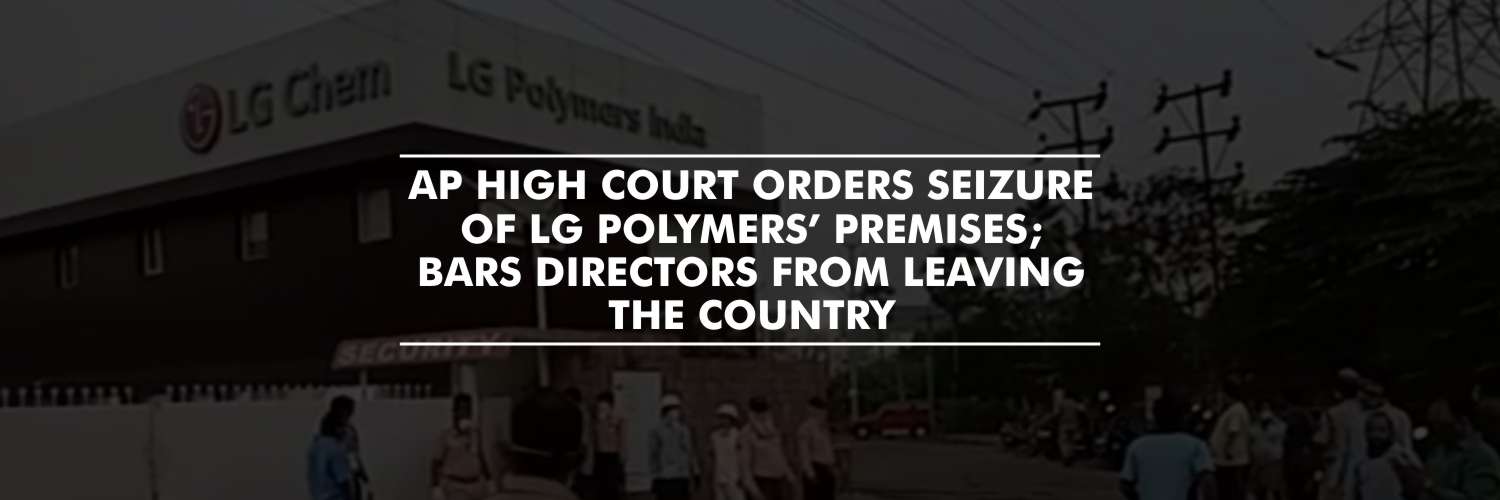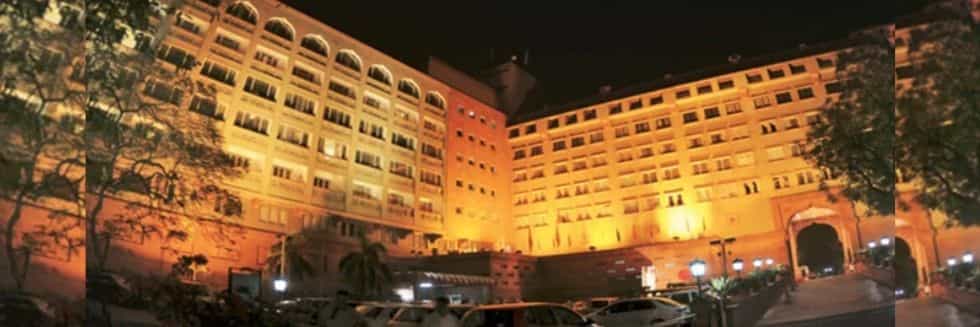On Friday, the Andhra Pradesh High Court has directed the state government to seize the premises of LG Polymers in Visakhapatnam, with regards to the case relating to Styrene gas leakage from the plant which claimed 12 lives and affected hundreds of others during the wee hours of 7th May.
The bench comprising of Chief Justice J K Maheshwari and Justice Lalitha Kanneganti while hearing three writ petitions, passed the interim orders on Friday, but the written orders were issued on Sunday, wherein it has also restrained the Directors of the company from leaving the country, without the leave of court.
The directions issued by the court include:
- The premises of the company shall be completely seized;
- No one should be allowed to enter into the premises including the Directors of the company;
- If any Committee has been appointed to inspect the premises, they are at liberty to do so, however, they shall make a note on the Register maintained at the gate of the Company regarding the said inspection and while returning, a note regarding the act done on the premises should also be noted;
- None of the assets, movable or immovable, fixture, machinery, and contents shall be allowed to be shifted without the leave of the Court;
- Further, the court also directed the authorities that the surrendered passports of the Company Directors should not be released without the leave of Court.
The Government should inform the Court whether any permission was obtained to restart the company’s operations during the lockdown period. If not, an action taken report on this aspect should be filed, given the grievance that multiple Committees over the issue have been appointed (by the NG, the Central Government, and the State Government) the Government authorities may appraise the Court as to which Committee shall fulfill the purpose to answer all questions raised on the issue.
While taking suo moto notice of the tragedy on 7th May, the Court had noted that Styrene is notified as a dangerous substance under the provisions of the Environmental Protection Act and as per the Chemical Accident (Emergency Planning, Preparedness, and Response) Rules of 1996, certain crisis response steps need to be taken, such as the formulation of Crisis alert system, central crisis group, state crisis group all the way down to the local crisis group. “It is a matter of inquiry and assessment that the provisions of the said Rules have been observed or not,” observed the court.
It also wanted an explanation on the point that the inhibitor concentration in the storage tank was not checked, the refrigeration system was not working properly, the radius of the vulnerable zone extended up to 6.3 km from the sources and the siren/alarm system did not function.
Further, the bench took a serious note of the transportation of styrene monomer from the plant to South Korea. “After registration of crime, on the appointment of the investigation/inspection team and also when Magisterial inquiry was required, why, without the appointment of the said panel or permission of the Court, Styrene Monomer has been permitted to be transported to South Korea and who is the person responsible for the same,” the court asked and directed the Central and state governments, various government agencies and the company to submit the compliance report by 26th May.
Further, the matter has been listed for the next hearing on 28th May.






